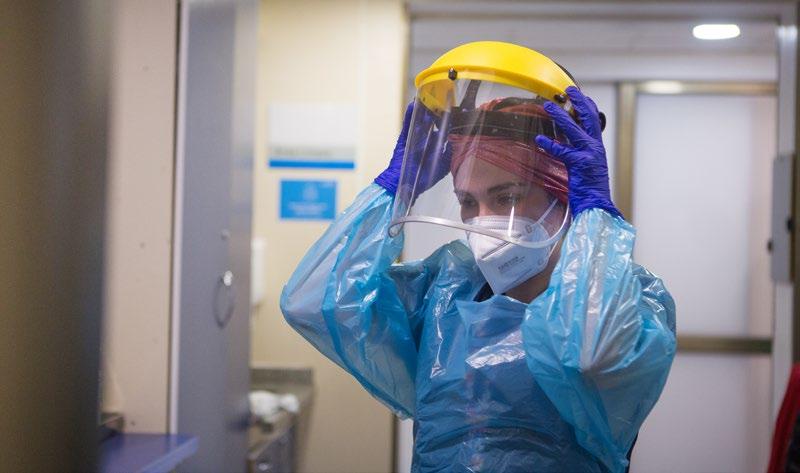
1 minute read
Things you never forget
ANTOFAGASTA — CHILE
silvia jiménez Nurse Bupa Antofagasta Hospital
At the beginning of all this, they would talk about how many intensive care unit spaces or ventilators we had in the country. But it’s important to remember that a ventilator on its own doesn't save a person. You need a 24/7 multidisciplinary team to care for each patient.
The workload and emotional load in particular have been heavy. We have had to isolate from our families, and some even from their partners, in order to look after our patients. I have stayed with my family: my husband and three children, as well as my mother-in-law, but I have had to stay away from my own parents - I would have never forgiven myself if they had got sick because of me. My mum has been very worried. She always cries when we say goodbye on video calls. That is really hard for me.
One of the most difficult moments in the last few months was when one of my work colleagues was transferred from the La Portada clinic on my shift. It was really tough to go through what we went through - you never think
someone you know is going to be a victim. When he came he was very upset and afraid, and I wanted to go and cry with him. But I couldn’t do that because I was more than a colleague, I was his nurse, and we should never cry in front of our patients - we always need to be strong for them. I am happy now though, as he recovered and is moving on.
Last week, a woman of 38 years old came from the wards very unwell. I remember we had to let her husband come in to say goodbye to her, and they were from a different community of Antofagasta, Mejillones. I let him in. He was a big, bulky fellow. We wrapped him up in the PPE and left him in the room with a paramedic and the head doctor. He asked his wife Why are you leaving me alone, what will I tell the children? Then he came back and asked us Why do so many of the best people die?
At times like that, your heart bleeds for these people. And I that will stay with me forever. �








